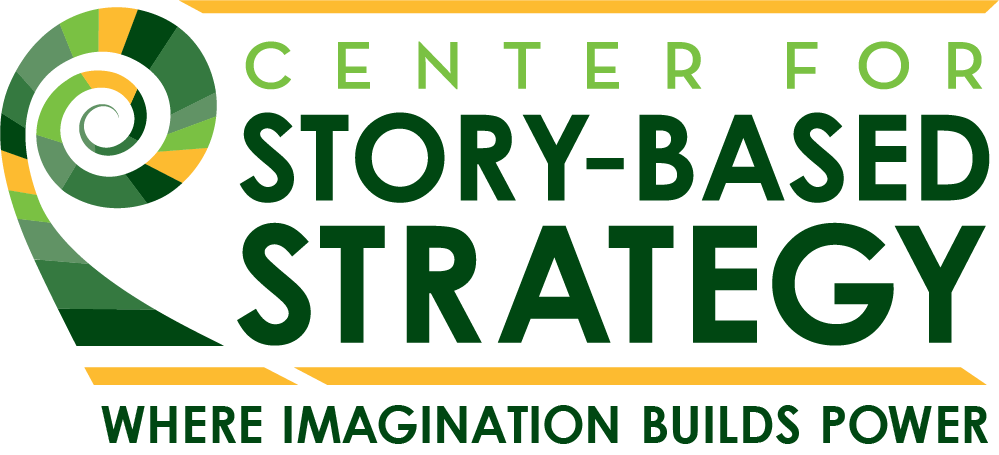Story-based strategy on the Bill Moyers Show
Moyers and Company ran a complete show on How People Power Generates Change featuring Marshall Ganz, Rachel LaForest, and Madeline Janis. We're so excited to see Right to The City's work getting the acknowledgement and credit it deserves.The entire show is of interest to organizers and change makers, and big congratulations to Los Angeles New Economy for their recent victories, described in the clip below.
We here at the Center for Story-based Strategy feel extremely honored that our collobaration with Right to the City on their # HomesforAll campaign was a point of interest for Moyers. Beginning at 7:40, Rachel breaks down the dominant narrative of housing in this country, and shouts out CSS training.
THE ENTIRE PROGRAM IS AVAILABLE:
BILL MOYERS: I read that you did a story based strategy with homeowners facing foreclosure, that you're doing it in 11 cities. What's the story there?
RACHEL LAFOREST: So there is actually this brilliant organization that does training for organizations in this country called The Center for Story-based Strategy. And their premise is exactly what Marshall describes. Is that values are communicated through meaning. Not necessarily through facts, but giving meaning to a set of values and being able to tell a story.
And so, we've got a national campaign around housing that we use foreclosure, homeowners who are facing foreclosure, homeless families and homeless individuals, renters and public housing residents for the first time really coming together to talk about how each of their stories influences each other and what each of their struggles has, in terms of interconnectedness and how there's influence. And so, we brought them through a training with the Center for Story-based Strategy to really look at what the dominant narrative is around housing in this country.
BILL MOYERS: What is it?
RACHEL LAFOREST: Well, for a long time it's been that your ticket to the American dream, or demonstrating that you've arrived within the American dream, that a piece of that is home ownership. And that owning a home meant that you have claimed a stake and you are now a part of the fabric of this country. So what did that mean for people who were homeless, who were renters, who were part of public housing? So it created a huge chasm. And so, we're challenging the assumption that home ownership means the American dream. But that rather that access to equitable housing and housing that is affordable and allows for people to participate in their communities is actually what the American Dream is.
